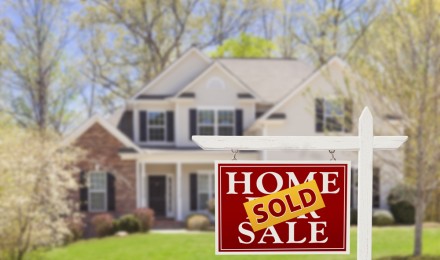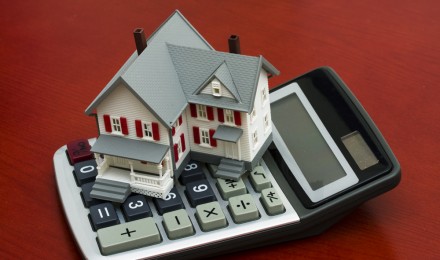Everyone’s financial situation is different, and in order to accommodate, the market has provided many different mortgage options for those looking to borrow. Some will fit perfectly and others will not; regardless, it is important to know the different types of home mortgages before committing to just one of them.
Fixed-Rate
Most people will end up going with a fixed-rate mortgage. They will get locked in for a period of usually 15 or 30 years. The interest rate will never change, and the principal and interest payments will remain the same until the loan is paid off. The downside is that when the market rate drops, the borrower still pays the higher rate they are locked into.
FHA
For those who may not qualify for a home loan, due to low income or poor credit, they still might be able to obtain a Federal Housing Authority loan. These loans are basically the same as fixed-rate loans, but they are backed by a government insurance program. The cost is normally 1% of the value of the loan, due from the borrower at closing.
VA
Those who have served our country in the military, or those currently serving, have the option to get a low interest loan with little or no down payment. The Veteran Affairs program allows those who meet their eligibility requirements to become home owners more easily
ARM
An Adjustable Rate Mortgage (ARM) is used instead of a fixed-rate in certain circumstances. The borrower will be locked into a low interest rate, usually slightly lower than those offered on 15 year loans, for a short period of time. After the initial term is over, the rate varies every year with the market. ARM loans are often seen as a gamble, and should be entered into with caution.
Interest Only
With an interest only loan the borrower will simply pay the interest with each payment. There will be no equity built up during the loan repayment period, and when the term is over, the borrower will need to arrange for new financing. The risk the borrower is taking is that the home could lose value, and they will end up owing more than the home is worth.
Balloon
A balloon loan will function in nearly the same way an ARM functions. Except that at the end of the initial term, instead of adjusting the interest rate, the remaining amount of the loan is due. Lenders will offer a low interest rate up front, in hopes that the borrower will need to make arrangements for new financing at the end of the initial term. The loan works great for those who plan to sell in a short period of time.
Jumbo
Those who make above average incomes usually want to purchase homes with above average sticker prices. In order to do so, they have to get a jumbo loan. A mortgage that is for more than $417,000 is considered jumbo. Since the lender is taking on more risk with such a large loan, they charge a higher interest rate.
There are a wide variety of home mortgages that the borrower can choose from. Some will fit their needs perfectly, while others will not even be an option to them. When it comes time to arrange for financing when buying your next home, consider one of the less popular loans, it might help save money in the long run.
Everyone’s financial situation is different, and in order to accommodate, the market has provided many different mortgage options for those looking to borrow. Some will fit perfectly and others will not; regardless, it is important to know the different types of home mortgages before committing to just one of them.
Fixed-Rate
Most people will end up going with a fixed-rate mortgage. They will get locked in for a period of usually 15 or 30 years. The interest rate will never change, and the principal and interest payments will remain the same until the loan is paid off. The downside is that when the market rate drops, the borrower still pays the higher rate they are locked into.
FHA
For those who may not qualify for a home loan, due to low income or poor credit, they still might be able to obtain a Federal Housing Authority loan. These loans are basically the same as fixed-rate loans, but they are backed by a government insurance program. The cost is normally 1% of the value of the loan, due from the borrower at closing.
VA
Those who have served our country in the military, or those currently serving, have the option to get a low interest loan with little or no down payment. The Veteran Affairs program allows those who meet their eligibility requirements to become home owners more easily
ARM
An Adjustable Rate Mortgage (ARM) is used instead of a fixed-rate in certain circumstances. The borrower will be locked into a low interest rate, usually slightly lower than those offered on 15 year loans, for a short period of time. After the initial term is over, the rate varies every year with the market. ARM loans are often seen as a gamble, and should be entered into with caution.
Interest Only
With an interest only loan the borrower will simply pay the interest with each payment. There will be no equity built up during the loan repayment period, and when the term is over, the borrower will need to arrange for new financing. The risk the borrower is taking is that the home could lose value, and they will end up owing more than the home is worth.
Balloon
A balloon loan will function in nearly the same way an ARM functions. Except that at the end of the initial term, instead of adjusting the interest rate, the remaining amount of the loan is due. Lenders will offer a low interest rate up front, in hopes that the borrower will need to make arrangements for new financing at the end of the initial term. The loan works great for those who plan to sell in a short period of time.
Jumbo
Those who make above average incomes usually want to purchase homes with above average sticker prices. In order to do so, they have to get a jumbo loan. A mortgage that is for more than $417,000 is considered jumbo. Since the lender is taking on more risk with such a large loan, they charge a higher interest rate.
There are a wide variety of home mortgages that the borrower can choose from. Some will fit their needs perfectly, while others will not even be an option to them. When it comes time to arrange for financing when buying your next home, consider one of the less popular loans, it might help save money in the long run.







